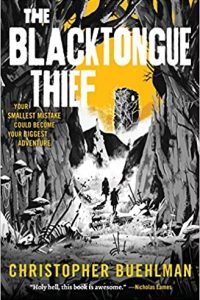Paul Di Filippo reviews Peter F. Hamilton
The case of Peter F. Hamilton is a curious one. His books are ambitious and intelligent and serve to advance the field, as well as to entertain. He has numerous passionate fans whose support earns him best-seller status. And yet despite this, his profile in the field among his peers and the critics and the fans who vote for awards is oddly low. His novels have never been nominated for a Hugo or Nebula, as one can see from studying the ballot archives. He did get on the Clarke Award ballot—once—and has won a BSFA award and one from Interzone. He is seldom the subject of long dissertations. As I said, a curious mystery. Perhaps he is simply too popular, his books too lush and sprawling and insufficiently high-minded or trendy or grimdark. Oh, well, the lack of attention from these quarters luckily does not seem to dissuade Hamilton from writing, so no harm done.
I must confess at the outset that despite enjoying all the Hamilton books I’ve read and reviewed, I am not utterly current with his voluminous output. And so I approach this new book, which forms part of his Commonwealth saga and serves as a prequel to the Void trilogy, with less-than-perfect backstory knowledge. But then again, many readers encountering this novel are probably in the same boat, so my partial ignorance might prove useful as a measure of the book’s welcoming or forbidding attitude.
Upon opening the book, we immediately find a handy timeline of Hamilton’s future history, a cast of characters and a map, always useful aids to entering a new fictional world. And our entrance is surely dramatic and gripping. On a colonizing starship bound for a new home, our first protagonist, Laura Brandt, is yanked from suspended animation to help deal with a crisis. She and her ship have fallen into the Void, that strange sector of anomalous space that lives at the heart of our galaxy. In this zone, technology begins to break down, to be replaced by “magic” and ESP powers. Tasked with investigating a nearby artificial construct while the main ship heads towards what seems to be a refuge planet, Laura and her few companions encounter strange monsters in a tautly suspenseful Aliens-style scenario. Hamilton will mercilessly make us wait hundreds of pages to learn Laura’s fate, in a beautifully circular climax.
We next cut to Nigel Sheldon, immortal founder of the post-scarcity galactic realm, the Commonwealth. Nigel has been around for some 1400 years, since the era when humanity was confined to the solar system. He currently has several personal schemes and plans afoot when he is asked by the Raiels—the elephantine aliens who have been patrolling the Void for a million years—to help deal with new and disturbing developments inside the Void. He accommodates his two paths by cloning himself and sending that avatar inside.
Our third track concerns the planet Bienvenido, inside the Void. There we meet a military man, Slvasta, a member of the guardian corps that hunts down and exterminates the Fallers. These creatures prove to be the same kind of horror that attacked Laura Brandt. They come from space, landing as eggs which lure and absorb any living creature in range, producing a perverted Faller duplicate of such unlucky beings. (Any similarity to Jack Finney’s Invasion of the Bodysnatchers is delightfully exploited and ramified.) The portrait of Bienvenido is built up in thick anthropological detail, and Slvasta’s career and personal life is likewise deeply engaged.
Staying on Bienvenido in yet another track, we catch up with Nigel and his companion and partner, a young woman named Kysandra whom he initiates into Commonwealth ways and technologies. Together they intend to stop the Fallers, and perhaps even accomplish much bigger things. This of course brings them into Slvasta’s sphere of political action.
With most of the story taking place inside the Void, we don’t see much of the Commonwealth, but it’s always in the background, and its tenets and lifestyles and abilities are of course represented by Nigel. The Commonwealth is a fascinating instance of a post-scarcity culture, different from anything promulgated by Charles Stross and others. Hamilton seems to believe that mere extinction of physical and biological wants will hardly be conducive to any form of competition-free utopia. The very existence of his crime-fighting character Paula Myo is proof of that.
As for the adventures on Bienvenido, they are incredibly robust and exciting and rousing, sharing flavors of Jack Vance, John Wright, China Miéville, Orson Scott Card, and A. E. van Vogt. Hamilton’s deployment of lots of grand super-science ideas is utterly deft and convincing, and his word-hoard of potent neologisms reflects this. I find his character-building equally worthy. Perhaps the most effective arc is that of Kysandra, who goes from ignorant, abused teenager to a figure approaching the stature of Nigel himself—although Slvasta’s biography is nearly as astonishing.
The book ends with a very satisfying tying up of loose ends, but also opens out for the sequel that will conclude this duology: Night Without Stars.
Peter Hamilton’s new novel stands shoulder-to-shoulder with the Culture books of Iain Banks and the Kefahuchi Tract saga of M. John Harrison, but rotated through the looking glass of a totally different, resolutely non-postmodern worldview, to produce a book that is paradoxically both old-school and totally au courant: the best of two worlds.
A nice pendant to the publication of this book is an accompanying soundtrack by some folks named Evokescape. You can listen to samples at their site. I found the music agreeably interstellar and eerie, stirring and brooding, but in a kind of universal way. In other words, I could conceive of it being a soundtrack to a book by Vernor Vinge or Greg Bear or Alistair Reynolds just as easily as to Hamilton’s.









